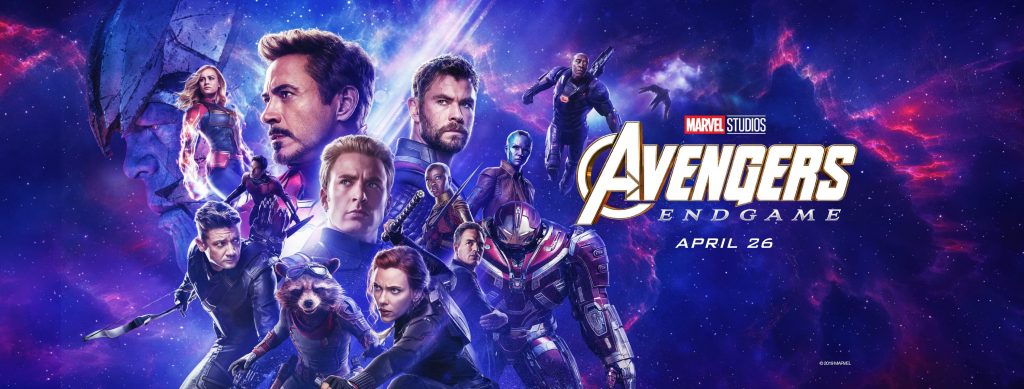By Charly SHELTON
After 22 films, 11 years, $20 billion at the box office and countless memories, the Avengers have finally Avenged. Starting with “Iron Man” way back in 2008, the idea of a cinematic universe was created and perfected through these films – some as good as “The Avengers” (2012) and some as meh as “Iron Man 3” (2013) – and they were all been woven together to create the massive tapestry that is “Avengers: Infinity War” and “Endgame.” Now, if you are the last person on Earth who hasn’t seen “Avengers: Endgame” yet, I suggest you stop reading this right now. There aren’t massive spoilers in this review, but I will be describing the plot. So stop reading if you don’t want to know anything.
I’ll wait.
We all good? Okay. So, at the end of “Infinity War,” half of everyone has poofed. That’s what we know going in. As Tony Stark said in “The Avengers” (2012), “If we can’t protect the Earth, you can be damn sure we’ll avenge it.” That’s exactly what happens. The remaining Avengers – all the OG heroes from the first movie, plus Rocket Raccoon, Ant Man, War Machine and Nebula – have to unpoof everyone. But when Thanos, retired to a life of peace, destroys the stones, they are gone.
Five years elapse. The Avengers have moved on, trying to get by with their loss. Also, Captain Marvel makes a cameo. And then Ant Man, freshly back from the microverse of the Quantum Realm, accidentally discovers time travel. The Avengers now have a way of undoing what Thanos did five years before – travel back in time to get the stones and bring them back… to the future … where they can unpoof everyone and avenge the loss.
There’s way more than that, but this is the main issue I had with the film. Time travel. It’s a lazy plot device that sci-fi writers can call on when they have written themselves into a corner. When the power is too big and everything is too much, they can always time travel to get at it when it wasn’t so strong. Almost like a futuristic deus ex machina. And, granted, it doesn’t always work out well for everyone; there are usually some losses for pathos in the story. And this film is no exception. But when you invoke time travel without an ironclad set of time travel rules, the whole thing gets messy and viewers can poke more and more holes in the plot. Why didn’t they just go back earlier? Why don’t they just stop him from snapping? Why don’t they go back to when the stones were created? Why doesn’t it affect anything ever? Are we in an alternate tangent universe now? This is what happens when you don’t have a Reed Richards to prevent the abuse of tech for bending the laws of reality. And now, after meddling in the timelines of previous films, does it change the outcomes of the films we previously saw, even if the stones are put back? Did the Agent Carter series ever happen if Cap was back? Where the hell is Loki? Important, world-changing questions that are left unanswered because there are just too many holes.
It’s not that I didn’t like the film. It’s just not as good as some of the other movies because of the massive, gaping plot holes. I really enjoyed the action, and the time heist, and the final battle was very “Ready Player One” with so many heroes and Easter eggs to look for. But overall, it doesn’t live up to what I expected from the franchise that brought us “The Avengers” (2012) and “Iron Man” (2008). The early films really were spectacular pieces of cinema history and now I think they’re getting too big to handle; too much power, too many characters. Much like the Marvel Comics the films are (loosely) based on, they are getting over the top with trying to one-up each other.
Again, it’s not that I hated the film. But manage your expectations going in. It’s a nice way to say goodbye to these characters we have gotten to know and love for the last 11 years, but it may be just the right time to say goodbye.
Rated PG-13, “Avengers: Endgame” is playing everywhere forever.

